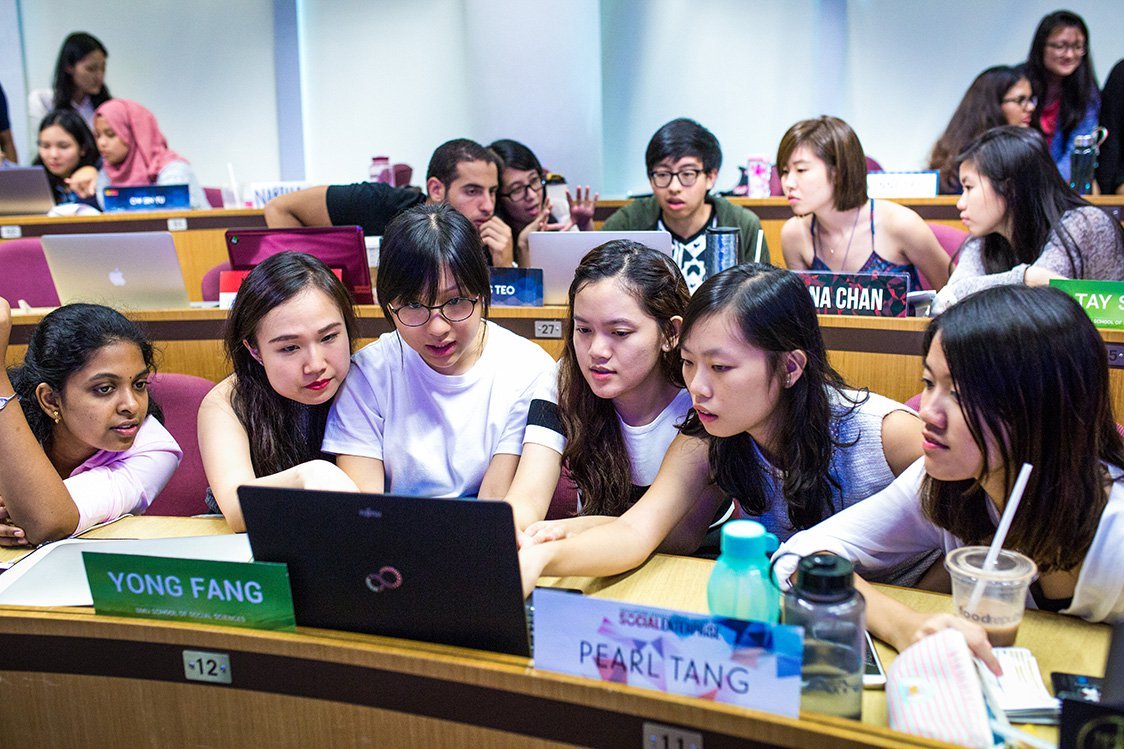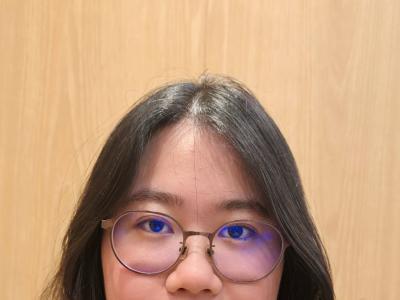
There is a common belief that extroverts—who are typically stimulated by public discussion and interaction, and who think out loud—are more likely to get ahead in the workplace than introverts, who are more predisposed to quiet reflection and risk-aversion.
In recent years, considerable amounts of research have gone into finding ways to make the workplace better for people who may be less likely to go out on a limb with their views, based on the recognition that both personality types have an equal amount to offer.
There is a parallel discussion going on at universities, where a growing preference towards participatory and seminar-style learning could be seen to create an environment which works against introverted personalities.
This perception could deter introverts from enrolling in courses that have a bias towards this kind of pedagogy, such as business or law. However, Professor of Sociology Paulin Tay Straughan, Dean of Students at SMU, says that all personality types can thrive if programmes and methodologies are appropriately designed.

Dean of Students, Professor Paulin Tay Straughan
SMU, which was founded in a collaboration with the famed US Wharton School of the University of Pennsylvania, pioneers the interactive pedagogy in Singapore and maintains small class sizes to create an environment where everyone can participate and learn.
“While those who are naturally extroverted may find it less daunting to speak out in the group, students soon learn that the core requisites centre on meaningful critical discourse,” Prof Straughan says. “So it’s not just having the guts to raise issues, but it is more about learning how to critically assess the subject matter and to raise questions that contribute to better appreciation about the issue under discussion.”
Doing well within SMU’s pedagogical framework needs more than just a gregarious personality that is predisposed to public speaking, according to Prof Straughan. “In my opinion, all students—regardless of their personality types—have to learn how to meaningfully engage in the seminar room,” she says. “In my classroom, I try to be sensitive to my students’ personality types by paying close attention to their responses and body language. So having nameplates in the seminar rooms is very useful. Instead of relying on those who readily offer their views, I try to call on those who are quieter, and encourage them to share their thoughts.”
Seminars at SMU are structured to encourage students to think critically, raise questions and to engage in critical discourse with their lecturers and peers.
“I don’t think you have to be an extroverted personality type to benefit from this form of intellectual engagement,” Prof Straughan says. “While those who are shyer may find it difficult in the beginning, the pervasiveness of our unique pedagogy normalises such intellectual exchanges so, over time, it will be normal even for the more introverted personalities to learn to ask questions and to engage in academic discussions.”
Encouraging more introverted students to participate and to gain confidence in expressing their views is important for their future success in the workplace. Natural introverts are more likely to be keen listeners who will take the time to consider and muse on answers and solutions. While this may be a valuable trait, it could also work against them if co-workers and supervisors are not patient enough to wait for responses.
“So at SMU, we normalise asking questions and group interactions. As this is consistently encouraged in every module, by the time our students graduate, they are more confident about public speaking and will be able to add value to their work group through meaning engagement. Again, it is important to note that we don’t just encourage our students to speak up, but to engage in critical thinking and meaningful deconstruction through group discussion,” Prof Straughan says.
This kind of class participation promotes several learning outcomes that are valuable in the workplace, she explains. It encourages students to prepare and read ahead so that they are able to engage in critical discourse, but also pushes them to think on the spot and to process and reflect critically on new information as they receive it.
“At the University, we are preparing our students for a lifetime of careers, and many of these jobs do not yet exist,” Prof Straughan says. “So the best we can do is to teach students how to teach themselves, to be always alert and anticipate new evolutions, and to use the tools we give them to deconstruct the new information.”
This article was originally published on The SMU Blog.


